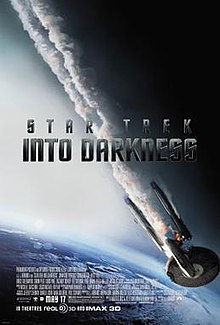I don’t have a fandom like J.K. Rowling or J.R.R. Tolkien (maybe I don’t have enough initials in my pen name). In fact, I don’t really have a fandom at all. However, I am certainly a fan of certain franchises. Sometimes I find myself cringing when these franchises are either rebooted or remade. Sure, there is always some hope that the new material can successfully capture the elements that made the original the hit that it was. However, this is rarely the case.
Before we give our fans what they want, we need to understand what it is.
For example’s sake, let’s look at two famous sci-fi franchises that have some very die-hard followers: Star Wars and Star Trek. Everyone agrees that these two franchises are similar in that they are both in the science fiction genre, but that’s essentially where the similarities end. In fact, these fandoms are almost so vehemently adamant on the superiority of their source material that you will rarely find someone who finds the two of them on equal ground.

I’m a fan of Star Wars, so let me start with the Star Trek reboot series that began in 2009. I liked it. Both Star Trek (2009) and Star Trek: Into Darkness (2013) were enjoyable movies for me. This may have been because I enjoy the works of J.J. Abrams, but there’s more to it than that. Part of why I like Star Wars more than Star Trek is that I can watch the base canon of Star Wars in a single day. Star Trek, on the other hand, requires me to watch numerous seasons and series that I just don’t have the time for. So, why do I like these new Star Trek movies? They were flashy, fun, and full of action! Fans of Star Trek, however, begged to differ.
I began to wonder why the true fans of Star Trek disliked these movies? They had all the elements that made Star Trek memorable: the classic crew, tribbles, Khan. Then why is Star Trek: Into Darkness (in particular) such a terrible movie for them? It’s because it ignores the base reason why they like the franchise at all. It’s not about the action or battles, but more about the journey. It’s about the Trek. A good friend of mine explained it this way, “The new Star Trek films were created in such a way that they were essentially Star Wars films.” Even with the “memes” of Star Trek present in these reboots, the tone was so different that it turned its fandom off.

Looking back at the prequel trilogy for Star Wars, I see that it also had the same problem. The worst film of this set, Episode I: The Phantom Menace (1999) had gotten everyone’s hopes up because we had been starved for new Star Wars material for many years. Unfortunately, only the “popular” elements of the original trilogy were taken into the prequel trilogy, without the cohesive synergy to make them work their magic again. So much of what was wrong with The Phantom Menace was because the wrong things were being focused on. While C-3P0 was amusing in the first trilogy, we didn’t need a Jar Jar Binks to really force the comedy. Lightsaber battles were exciting, so why not give the bad guy two of them? Granted, some of these things worked, but it felt too forced.
Fast forward to today and the rave reviews people have given Episode VII: The Force Awakens (2015). While the plot was essentially pulled from Episode IV: A New Hope (1977), enough of it was different to be interesting, but it also managed to maintain that base element of synergy that made the first film in the series work (while also trimming some of what didn’t). A lot of The Force Awakens’ success came in recognizing that new technology (like CGI) might not be necessary when trying to emulate something that worked in the past.
Franchises can live and die by the opinion of their fandoms.
So, what does this mean to you as a content creator? If you are lucky enough to garner yourself a fandom, take some time to listen to them. Find out what they like about your content. While they’ll still want something new from you, there are certain themes and motifs that will keep them coming back for more. Part of why the reboots of these franchises were shunned by their fandoms is that they were made with only a cursory knowledge of the elements that made them successful. The true success comes in listening to your fans and being able to deliver what they actually want. J.K. Rowling certainly recognizes this, and I hope to one day have enough fans to capitalize on it too.
